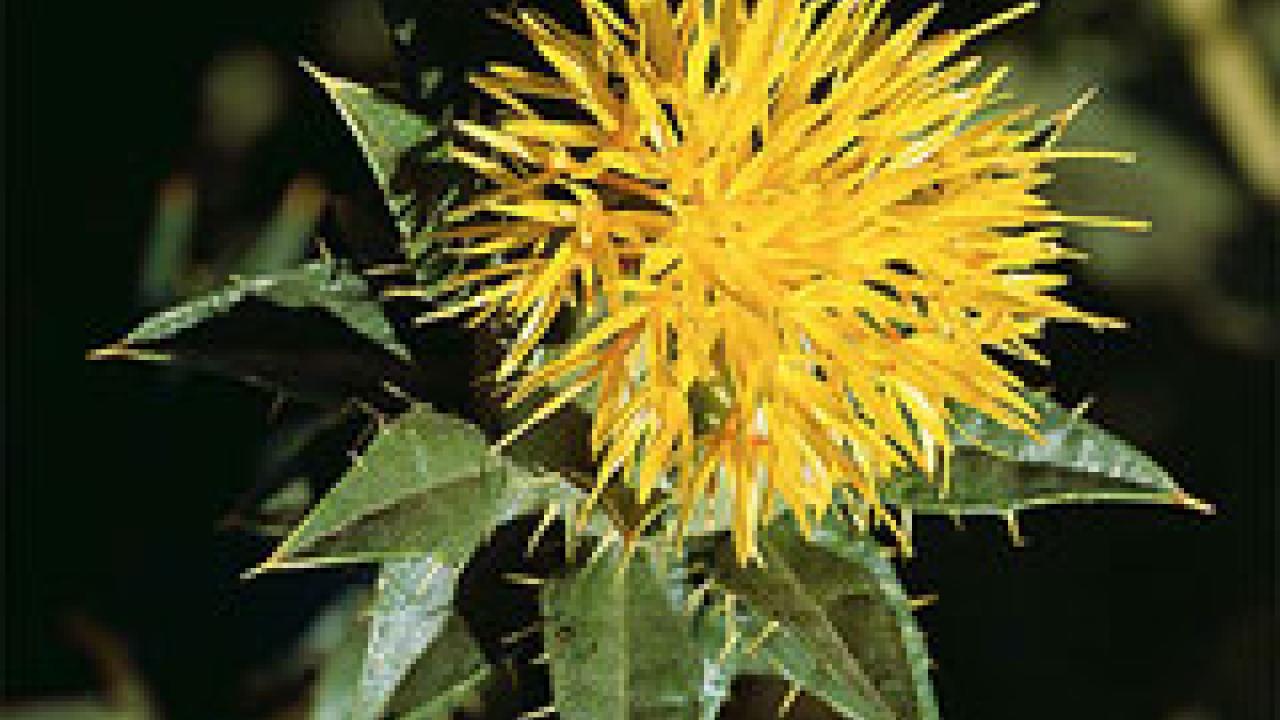Yields of biodiesel from oilseed crops such as safflower could be increased by up to 24 percent using a new process developed by chemists at UC Davis. The method converts both plant oils and carbohydrates into biodiesel in a single process, and should also improve the performance characteristics of biodiesel, especially in cold weather.
A paper describing the method, which has been patented, is online in the journal Energy & Fuels.
Conventional biodiesel production extracts plant oils and then converts them into fatty acid esters that can be used to power engines, said Mark Mascal, professor of chemistry at UC Davis and co-author of the paper with postdoctoral researcher Edward Nikitin. That leaves behind the carbohydrate portion of the plant — the sugars, starches, and cellulose that make up stems, leaves, seed husks and other structures.
The new process converts those carbohydrates into chemicals called levulinic acid esters — at the same time and in the same vessel that the oils are converted to fatty acid esters — resulting in a fuel cocktail that performs better at low temperatures than conventional biodiesel.
The fuel cocktail has a similar boiling range to conventional biodiesel, but is thinner; it becomes waxy at a lower temperature. Performance at low temperatures is a significant problem with B100 (conventional biodiesel), Mascal said.
"Our hope is that this blend of levulinate esters and biodiesel would perform better over a wider range of temperatures than biodiesel," Mascal said.
Levulinate esters are nontoxic and are used as food additives, Mascal said.
Costs of the new process may be somewhat higher than for conventional biodiesel production, but should be offset by improved fuel yields and performance, he said.
The researchers are partnering with Bently Biofuels of Minden, Nev., to test the performance of levulinate/B100 blends.
Media Resources
Andy Fell, Research news (emphasis: biological and physical sciences, and engineering), 530-752-4533, ahfell@ucdavis.edu
Mark Mascal, UC Davis Department of Chemistry, (530) 754-5373, mascal@chem.ucdavis.edu
